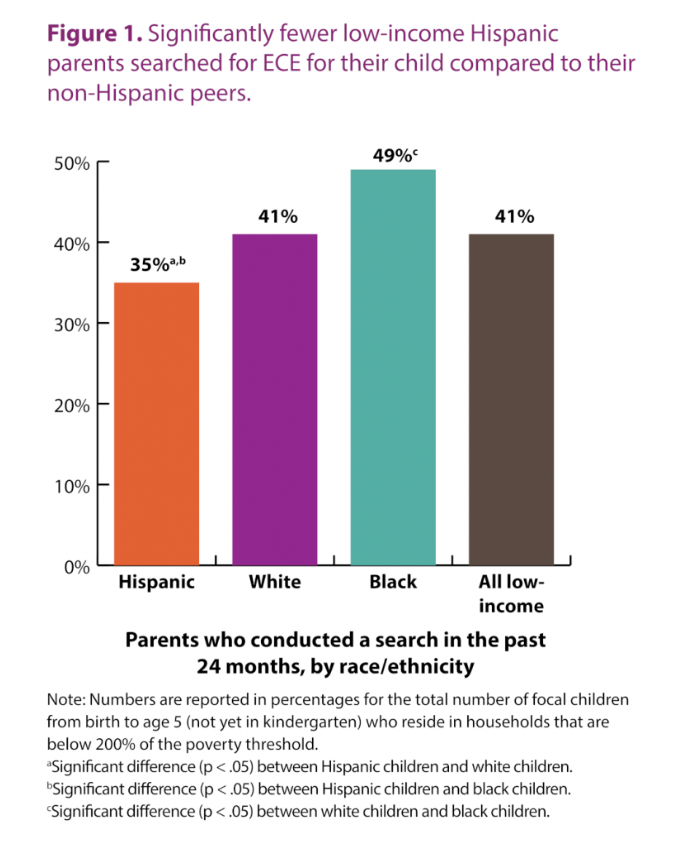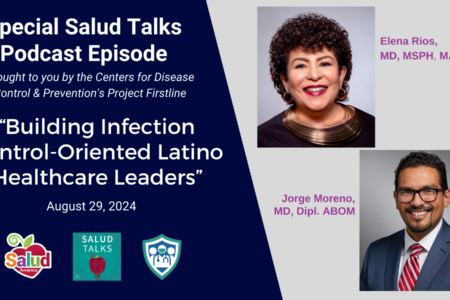
Share On Social!
Latino parents were less likely to search for Head Start, preschool, or other early card and education (ECE) programs than their black or white peers, according to a new report.
The report, from the National Research Center on Hispanic Children and Families, examined national data to find out why and how low-income Latino parents search for ECE programs. ECE programs play a big role in reducing racial/ethnic disparities in early learning and later school outcomes.
Turns out, only 35% of low-income Latino parents searched for ECE in the past 24 months. That’s less than black (49%) and white (41%) parents.
“This may indicate that the ECE search process is more burdensome for Hispanic households, particularly if language barriers make it more difficult for them to access information about care,” according to the new report.
Other Surprising Findings
The two main reasons for searching for ECE were consistent for all low-income parents: accommodate work schedules and provide child enrichment or social opportunities.

But Latinos parents started to differ in these four ways, according to the report:
- Low-income Latino parents with children ages 3-5 (44%) were significantly more likely to state that child enrichment was their reason for searching for early care and education, compared to black families (25%) with similar aged children.
- Low-income Latino parents were significantly less likely than their white and black peers to consider center-based care for their infant or toddler (ages 0-2), and significantly more likely than their black peers to consider a familiar home-based provider.
- Low-income Latino parents (50%) were less likely than their white peers (60%) to consider more than one provider.
- Low-income Latino parents (48%) were less likely than their white peers (63%) to change their care arrangement after a search.
“An ECE search that does not result in a change may be due to a mismatch between Hispanic families’ work needs and available care providers,” the report states. “Researchers may need more information to determine if fewer searches indicate satisfaction with care, lack of information, or feelings of hopelessness about finding care that is affordable and meets family needs.”
Latinos Miss Out on Benefits of Early Care and Education
The new ECE search report is vital, given that Latino families participate less in ECE than their peers.
In fact, only 40% of Latino 4-year-olds are enrolled in publicly funded preschool program, compared to 53% of their white peers, according to a Salud America! research review.
“A better understanding of the variation among racial/ethnic groups searching for ECE could allow providers in communities to highlight both the opportunities and constraints of certain arrangements when assisting families with selecting ECE arrangements that best meet their needs and/or preferences,” according to the report.
The report also reiterates the need for more research on ECE searches and strategies for locating reasonably priced and accessible child care that meets families’ needs.
“A greater understanding of these factors could enhance economic self-sufficiency for low-income Hispanic households with young children,” the report states.
By The Numbers
84
percent
of Latino parents support public funding for afterschool programs



